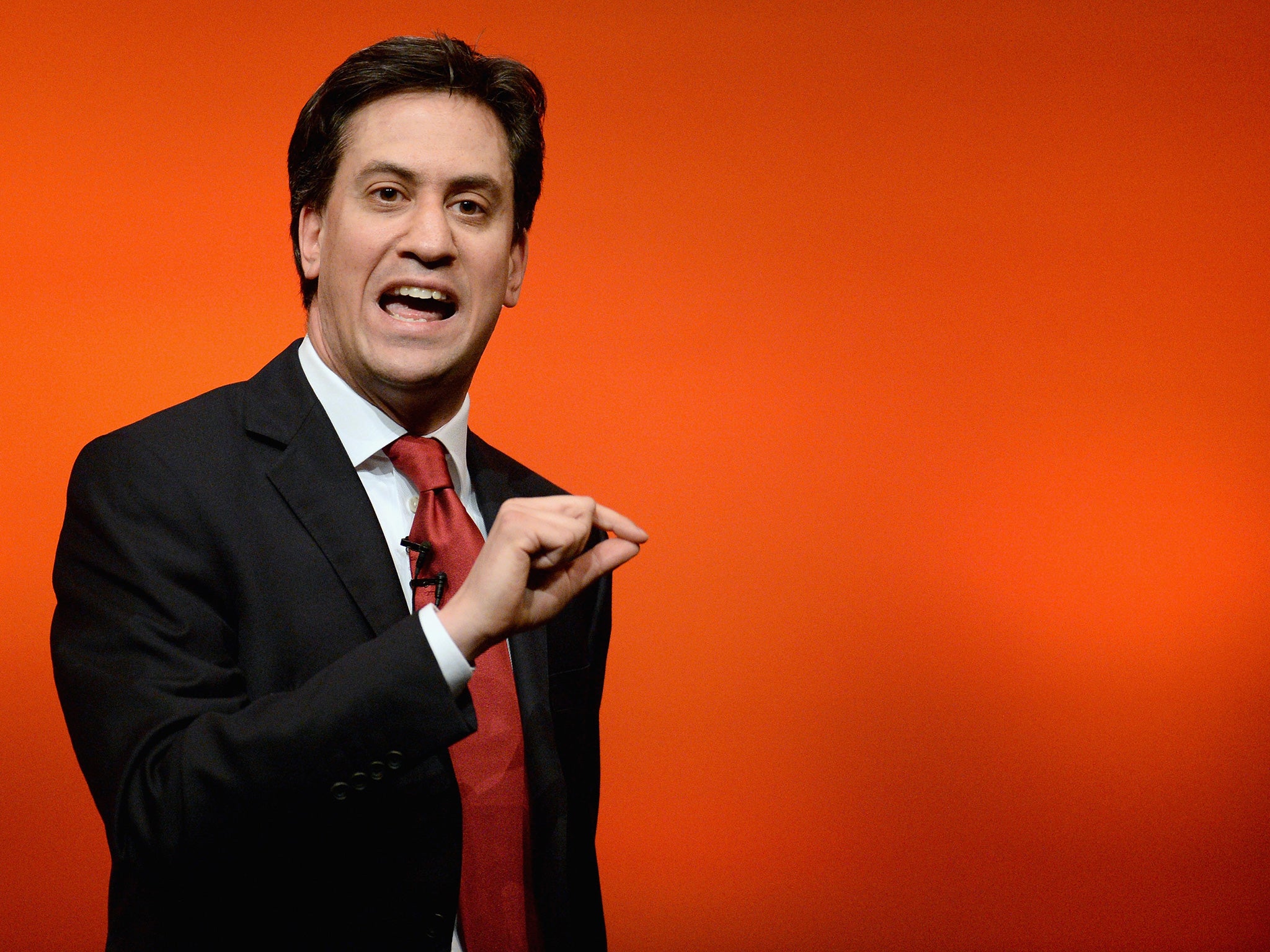Conflict in Labour hierarchy over potential power-share deal with SNP
Ed Miliband’s desire to rule out deal opposed by Jim Murphy, the party leader in Scotland

Ed Miliband wants to rule out any form of post-election deal with the Scottish National Party (SNP), but is being blocked by Labour’s leader in Scotland, party sources indicated yesterday.
Jim Murphy is understood to have argued that making such a firm pledge could backfire for the party on May 7 as it attempts to claw back tens of thousands of former Labour supporters from the SNP.
The issue of Labour’s response to the prospect of Nicola Sturgeon’s party winning dozens of seats in the election has opened deep divisions within Labour ranks.
Labour MPs on both sides of the border have warned that the leadership’s refusal to dismiss the prospect of a deal threatens to cost it support.
They are being backed by several shadow Cabinet ministers who have pressed Mr Miliband to take a tougher stance.
However, a Scottish Labour source told The Independent: “Ed wants to do it, but Jim is strongly opposed.
“He worries that ruling out any form of deal with the SNP, when they are supported by nearly half the electorate and we are a distant second, would make us look arrogant.”
The Tories have begun campaigning on a claim that a vote for Labour could be a vote for an SNP-Labour power-sharing deal, reinforcing the message in a poster of a tiny Mr Miliband sitting in the pocket of Alex Salmond, the former Scottish First Minister.
Labour MPs are threatening a revolt against any deal in a hung parliament by drawing up plans for a meeting days after the election – at which they would demand a veto on power-sharing arrangements negotiated by the leadership.
One Scottish MP said: “I would rather leave the party than do any sort of deal with the SNP. I’m deadly serious about that.”
Polls suggest the SNP could win up to 50 of the 59 Scottish parliamentary constituencies at the election, including the vast majority of Labour’s seats north of the border.
Even a less spectacular performance could still make it the third largest Westminster party after the May election and in a position to act as “kingmaker”. Ed Balls, the shadow Chancellor, who is known personally to support ruling out an SNP link-up, repeatedly sidestepped questions on the subject yesterday.
Mr Balls described the prospect as “nonsense” and said it was “not part of our plans”. He added: “I’m not going to get involved in speculation about post-election deals. We are fighting for a majority.”
Later during BBC1’s Andrew Marr Show, George Osborne similarly dodged questions over whether the Conservatives would be prepared to strike a deal with Ukip if the election result is indecisive.
The Chancellor also dismissed the idea as “nonsense” and insisted the Conservatives were fighting for an overall majority.
The Ukip leader, Nigel Farage, has said his party would support the Tories after May 7 if they stage a referendum on Britain’s membership of the European Union by the end of this year.
Mr Osborne said: “Nigel Farage, and indeed Ed Balls, are trying to muddy the waters, but it’s a fundamentally different situation.
“Nigel Farage is not going to win seats in the House of Commons, and even on his own boasts he’s only going to win a small handful. The SNP is likely to win dozens of seats because of the collapse of the Labour party,” he said.
Nick Clegg, the Liberal Democrat leader, yesterday ruled out forming a three-party coalition government with the SNP. In his keynote speech to the party’s spring conference in Liverpool, Mr Clegg said: “So let me be clear: just like we would not put Ukip in charge of Europe, we are not going to put the SNP in charge of Britain – a country they want to rip apart. It’s just not going to happen.”
A majority of people in the UK believe Scotland will become an independent country despite the “No” vote in last year’s referendum, according to a study.
In Scotland, 69 per cent believe there will be a split while 59 per cent of those surveyed in England, 54 per cent in Wales and 59 per cent in Northern Ireland think that Scotland will eventually leave the UK. The findings are from a survey of more than 7,000 voters by researchers at the University of Edinburgh.
Join our commenting forum
Join thought-provoking conversations, follow other Independent readers and see their replies
Comments
Bookmark popover
Removed from bookmarks